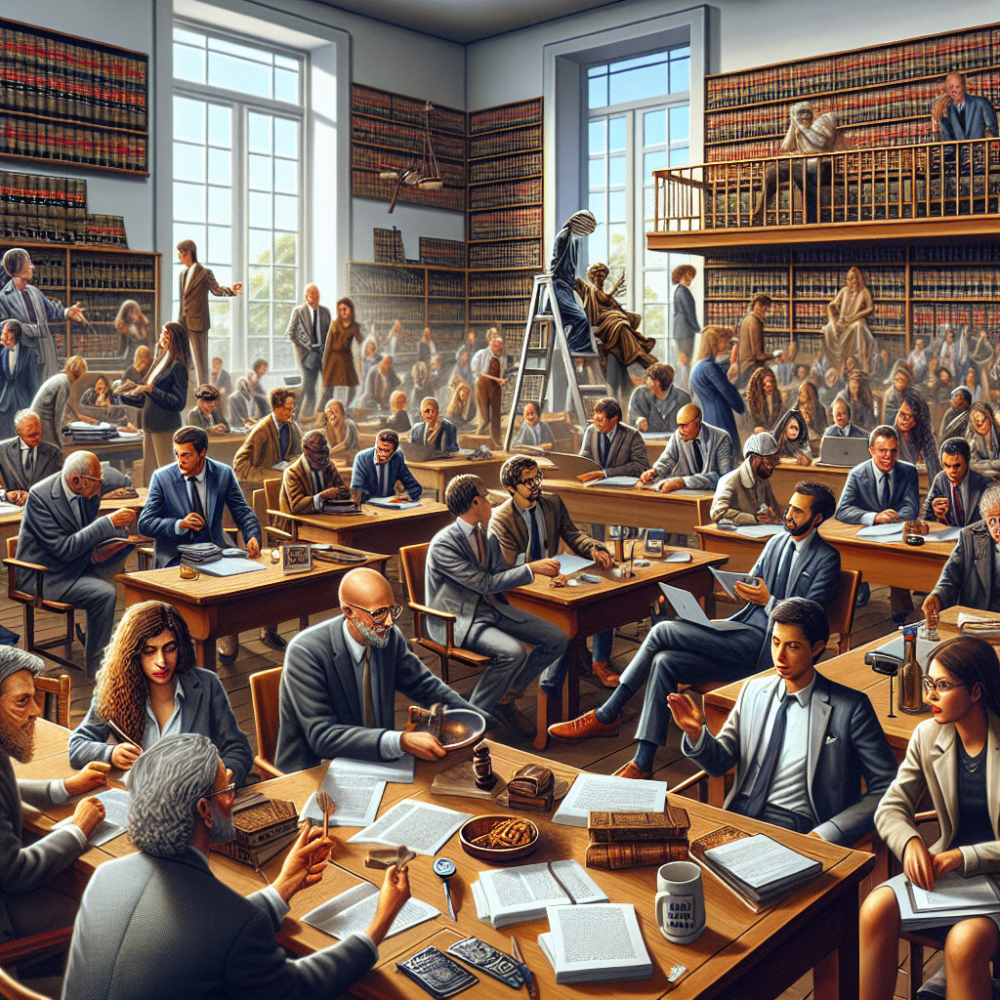Scholarship details
Brazil, a nation brimming with cultural diversity and rich historical heritage, is set to host the prestigious Law and Justice Scholars Program in 2024. This initiative is designed to nurture the next generation of legal minds while offering scholars an immersive experience in a country known for its vibrant legal landscape and commitment to social justice.
Host Organization Overview
The Law and Justice Scholars Program is organized by Fundação Getulio Vargas (FGV), one of Brazil’s leading institutions for higher education and research. Established in 1944, FGV has earned a stellar reputation for excellence in various fields, including law, economics, business administration, and public policy.
FGV’s Law School (Direito GV) is particularly renowned for its rigorous academic standards and innovative approach to legal education. The institution’s mission is to produce graduates who are not only well-versed in the law but also equipped with the critical thinking skills necessary to address complex legal issues. The program benefits from FGV’s extensive network of partnerships with global academic institutions and professional organizations.
Insights into the Host Country: Brazil
Brazil, the largest country in South America both by land area and population, offers a unique backdrop for this program. Its legal system is rooted in civil law traditions inherited from Portuguese colonization but has evolved significantly over time. Brazil’s constitution emphasizes fundamental human rights, social welfare programs, and environmental protection.
Cultural Diversity
One of the most compelling aspects of Brazil is its cultural diversity. The country boasts a mosaic of ethnic backgrounds including Indigenous peoples, Africans brought through the transatlantic slave trade, European settlers predominantly from Portugal but also Spain, Italy, Germany, Poland among others; as well as more recent immigrants from Japan and other countries. This blend creates a rich cultural tapestry that influences every aspect of Brazilian life—from music like samba and bossa nova to its famous cuisine.
Legal Landscape
Brazil’s legal system offers an intriguing study for scholars interested in comparative law. The Brazilian Constitution of 1988 is known as one of the most progressive globally regarding social rights. It guarantees healthcare as a universal right provided by the state-funded Unified Health System (SUS), ensures free public education at all levels except higher education which has partial autonomy but still receives substantial public funds; it also enshrines extensive labor rights among others protections.
Furthermore there are specialized courts dealing with labor disputes electoral matters military offenses etc., adding layers complexity fascinating comparison opportunities other jurisdictions worldwide especially those common-law traditions predominant Anglo-Saxon countries such United States United Kingdom Canada Australia
Structure & Highlights Of The Scholarship Program
The Law And Justice Scholars Program structured provide comprehensive exposure theoretical practical aspects Brazilian judiciary system laws policies related social justice human rights environmental protection gender equality labor relations corporate governance international trade
Academic Coursework And Seminars
Participants enrolled intensive coursework covering wide range topics relevant contemporary issues facing Brazilian society today: constitutional reforms criminal justice reform indigenous land rights climate change impacts biodiversity conservation digital privacy regulations transnational crime anti-corruption measures among others
Renowned faculty members FGV deliver lectures seminars fostering interactive discussions encouraging critical analysis viewpoints diverse cultural perspectives Students engage case studies moot court competitions collaborative research projects gain deeper understanding application principles real-world scenarios
Field Visits And Internships
In addition classroom learning participants afforded opportunities visit key institutions within Brazilian judiciary system including Supreme Federal Court Superior Court Justice various lower appellate courts well government agencies non-governmental organizations working areas human rights advocacy environmental conservation community development These visits designed provide firsthand insights functioning systems challenges practitioners stakeholders face daily basis
Internship placements facilitated connect students reputed law firms corporate legal departments NGOs offering invaluable practical experience honing skills networking potential employers mentors future career paths home countries abroad upon completion program scholars expected carry forward knowledge experiences gained contribute positively their respective communities promoting ideals justice equity rule law
Cultural Immersion Activities
Recognizing importance holistic development scholars beyond academics organizers curated array cultural immersion activities enhance overall experience participants encourage appreciation rich heritage traditions vibrant cultures different regions Brazil guided tours historic landmarks architectural marvels Rio Janeiro Salvador Bahia Belo Horizonte Ouro Preto among others included itinerary along attendance major festivals events showcasing music dance art theater local cuisine fostering sense belonging camaraderie cohort members promoting bonds transcending borders languages ethnicities further enriching transformative journey pursuit knowledge wisdom fairness compassion humanity shared planet earth





















